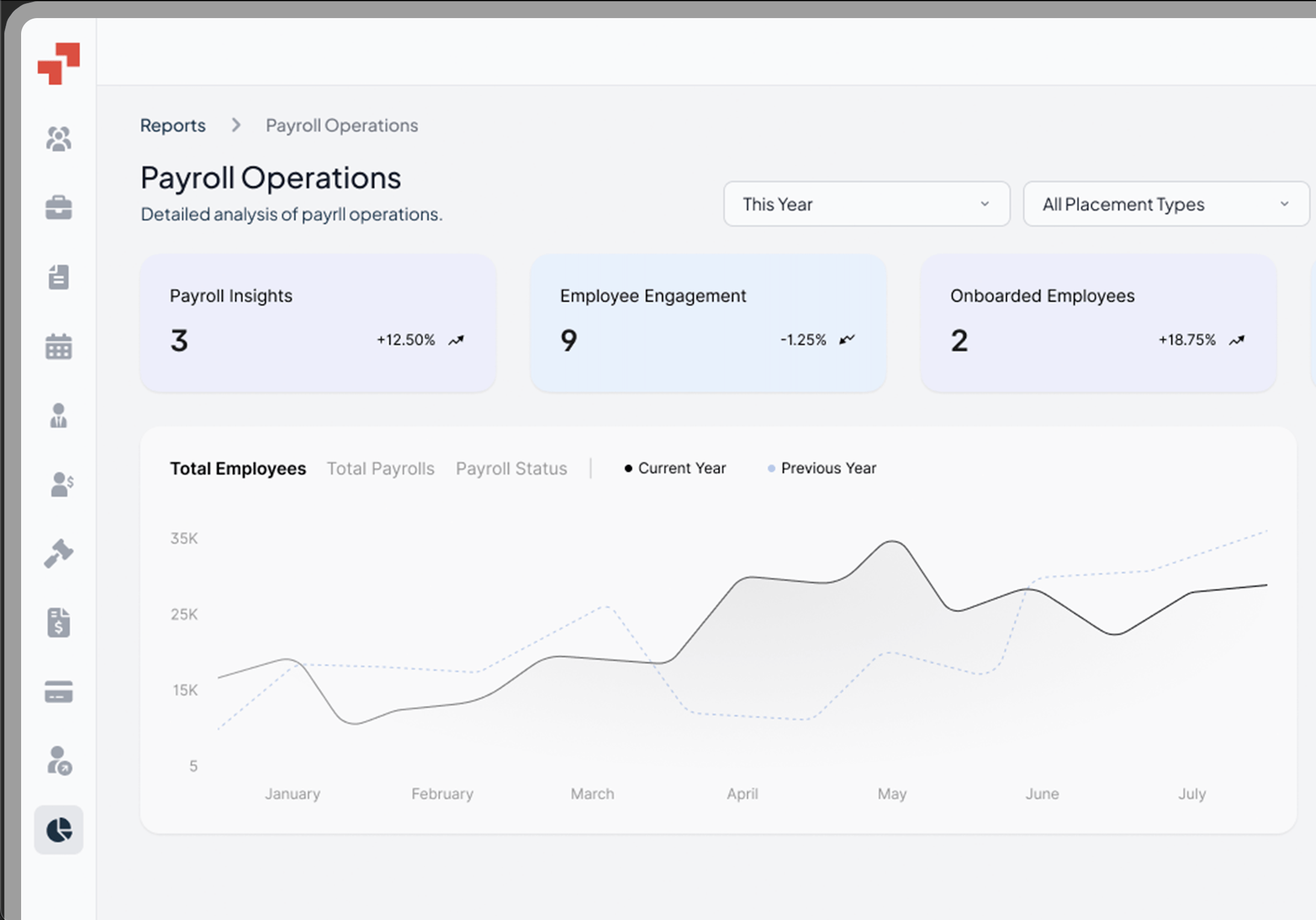In today’s globalized world, many businesses are looking beyond their home base and expanding into new international markets. This process involves companies growing their operations and services in other countries.
It’s a way for businesses to reach more customers, diversify their sources of income, and stay competitive in the ever-evolving marketplace. Let’s explore what global expansion entails and why it’s become such an important strategy for companies worldwide.
What is Global Expansion?
Global expansion, also known as international expansion, refers to the process by which a company extends its business operations beyond its home country’s borders and into foreign markets. This involves venturing into one or more other countries or regions to conduct business activities.
Essentially, global expansion is about a company’s growth journey outside its domestic market, aiming to tap into new opportunities and reach a broader customer base. It’s a strategic move that allows businesses to bring their products, services, and operations into target markets abroad, often referred to as “overseas expansion” or “foreign expansion.”
5 Factors to Consider for Successful International Expansion
1. Cost and Time Management:
Estimating the cost and time required for international expansion is paramount. By understanding the financial investment and time frame needed, businesses can effectively allocate resources, set realistic budgets, and ensure timely execution of expansion plans.
2. Human Resource Planning:
Determining the staffing requirements for the new establishment is essential. Businesses must decide whether to hire local talent or relocate existing personnel. Considerations include assessing educational qualifications, capabilities, compensation packages, compliance with HR laws, and cultural alignment.
3. Market Analysis:
Before entering a new market, it’s crucial to assess its growth potential and suitability for the business’s products or services. Analyzing market opportunities helps in identifying the target customer base, estimating investment needs, and avoiding resource wastage.
4. Tax and Legal Compliance:
Navigating the tax and legislative landscape of the target country is vital for compliance and operational stability. Understanding the complexity of international tax arrangements is crucial, as different countries offer varied tax rates, rules on deductions, and regulations regarding permanent establishment.
Businesses must understand local tax systems, immigration regulations, trade laws, and establishment procedures. Seeking professional advice from consultants can provide valuable insights into tax obligations, legal requirements, and ensuring compliance with international tax obligations.
5. Cultural Adaptation:
Understanding local cultures, preferences, and trends is essential for successful market penetration. Businesses should invest time in researching and adapting to local customs, traditions, and consumer behaviors. Knowledge of population demographics, such as age groups and income levels, can inform tailored marketing strategies and enhance the chances of business success in the new market.
By carefully addressing these factors, businesses can enhance their readiness for international expansion and increase their likelihood of sustainable growth and success in new markets. Companies generally decide to expand globally to increase their market reach, diversify revenue streams, tap into new customer segments, capitalize on growth opportunities, and gain access to valuable resources and talent pools.
In today’s fiercely competitive landscape, globalization has become imperative for attaining success. While numerous factors drive international expansion, business growth stands out as a primary motivator.
When consumers in international markets show interest in your products, it naturally sparks the desire for global expansion. However, thorough preparation is essential for international endeavours due to the accompanying global expansion benefits and risks.
Benefits of Global Expansion:
Expanding internationally presents a multitude of advantages and disadvantages for businesses and organizations. Here are some key benefits of international expansion.
1. Enhanced Market Access: Venturing into global markets provides access to diverse customer bases and segments, leading to increased sales and revenue streams.
2. Risk Mitigation: Diversifying operations across multiple markets reduces dependency on a single economy, thereby mitigating risks associated with regional economic fluctuations.
3. Talent Acquisition: Global expansion enables companies to tap into a wider talent pool, facilitating the recruitment of skilled professionals from around the world.
4. Economies of Scale: Scaling operations globally allows for increased efficiency in production and distribution, resulting in cost savings and improved profitability.
5. Knowledge Transfer: International expansion fosters the exchange of innovative ideas, technologies, and best practices across different markets, driving business innovation and process improvement.
6. Risk Diversification: Operating in multiple countries helps spread risks associated with geopolitical, economic, or regulatory changes, safeguarding against market-specific disruptions.
7. Competitive Edge: Expanding globally allows companies to establish a presence in untapped markets, gaining a competitive advantage over rivals who have not ventured into those territories.
8. Brand Exposure: International expansion boosts brand visibility and recognition on a global scale, enhancing the company’s reputation and market position.
9. Access to Resources: Global operations provide access to new sources of raw materials, suppliers, and distribution channels, strengthening the resilience of the supply chain.
10. Adaptation and Flexibility: Operating in diverse cultural, regulatory, and economic environments prompts companies to adapt and innovate, fostering organizational flexibility and agility.
11. Profit Potential: Entering emerging markets with a growing middle class presents significant profit opportunities as disposable incomes rise and consumer spending increases.
12. Strategic Partnerships: Global expansion opens doors to strategic partnerships and alliances with local businesses, facilitating mutual growth and market expansion.
13. Tax Advantages: Some countries offer tax incentives and preferential treatment to foreign investors, reducing the overall tax burden and enhancing profitability for expanding companies.
Get The Ultimate Playbook for US Tech Startups Looking to Expand in Europe
Europe awaits. But compliance, hiring, & market fit?
PamGro’s got you covered.

Disadvantages of International Business Expansion:
1. Language Barrier:
Expanding globally requires navigating language differences, hindering effective communication and collaboration among dispersed team members.
2. Cultural Sensitivity:
Bridging cultural gaps between team members residing in different countries is necessary to avoid misunderstandings and cultural insensitivity.
3. Compliance Challenges:
International expansion exposes businesses to complex regulatory landscapes, including tax structures, labor laws, and legal frameworks, posing significant compliance risks and legal liabilities.
4. Legal Risks:
Operating in foreign jurisdictions exposes businesses to legal challenges such as infringement claims, contract disputes, and regulatory non-compliance.
5. Establishment Costs:
Setting up operations in foreign markets entails substantial upfront costs, including infrastructure development, legal compliance, and administrative expenses.
6. Operational Complexities:
Expanding globally introduces operational challenges related to supply chain management, logistics, and infrastructure.
7. Currency Fluctuations:
International expansion exposes businesses to currency exchange rate fluctuations, impacting profitability and financial stability.
8. Political Instability:
Operating in foreign markets exposes businesses to geopolitical risks, including political instability, social unrest, and economic volatility.
9. Market Entry Challenges:
Entering unfamiliar markets presents challenges such as heightened competition, limited market knowledge, and legal complexities.
10. Human Resources Management:
Managing a global workforce introduces complexities related to hiring, payroll administration, and HR compliance across diverse geographies.
11. Cultural Adaptation:
Adapting products, services, and marketing strategies to local preferences and customs requires cultural intelligence and cross-cultural understanding.
12. Intellectual Property Risks:
Operating in foreign jurisdictions exposes businesses to intellectual property risks, including infringement claims and contract disputes.
13. Resource Allocation:
Expanding globally requires significant resources for market research, strategic planning, and operational execution, diverting attention and investment from other areas of the business.
Customer Success Story
Discover how an IT services company achieved a 25% reduction in recruitment costs while improving efficiency with PamGro.
Global Business Expansion Strategies
Expanding your business internationally offers a plethora of growth opportunities, yet navigating the complexities of foreign markets requires strategic planning and foresight. Here, we delve into several international expansion methods, each with its unique advantages and challenges.
1. Licensing Arrangements
Licensing arrangements entail granting other entities the rights to utilize your intellectual property under specific terms. While this approach offers a straightforward entry into foreign markets and leverages existing supply chains, navigating legal intricacies and maintaining brand integrity are critical considerations.
| Pros | Cons |
|---|---|
| Swift market access | Complex cross-border IP legislation |
| Capitalizing on licensee experience | High legal expenses |
| Revenue expansion and market reach | Risk of third-party breach |
| Potential for collaboration and innovation |
2. Mergers and Acquisitions (M&As)
Mergers and acquisitions involve the consolidation of two entities, providing access to established infrastructure and talent pools in target markets. However, M&As demand significant time and financial investments and entail regulatory complexities unique to each country.
| Pros | Cons |
|---|---|
| Access to comprehensive distribution networks | Resource-intensive process |
| Integration of diverse talents and innovative strategies | High failure rate |
| Potential for enhanced brand identity | Risk of cultural clashes |
3. Entity Setup
Entity setup involves establishing a physical presence and registered business entity in a foreign country, ensuring business continuity and control. While offering full autonomy, this method demands substantial setup costs and compliance with local regulations.
| Pros | Cons |
|---|---|
| Business continuity and security | High setup expenses |
| Access to capital and tax benefits | Tax obligations and compliance burdens |
| Complete control over operations and personnel | Lengthy incorporation process |
4. Professional Employer Organization (PEO)
Professional Employer Organizations (PEOs) provide comprehensive HR support, aiding in payroll management, benefits compliance, and employee experience enhancement. While offering streamlined HR operations, PEOs may limit flexibility in benefit selection and incur additional costs.
| Pros | Cons |
|---|---|
| Comprehensive employee benefits | Limited flexibility in benefits procurement |
| Assistance with payroll compliance | Potentially costly fee structures |
| Data security and enhanced employee experience | Reduced control over processes and personnel |
5. Employer of Record (EOR)
Employers of Record (EORs) offer rapid market entry without the need for entity setup, facilitating seamless hiring and onboarding processes. Despite offering in-depth market knowledge and compliance assurance, EORs may entail additional expenses.
| Pros | Cons |
|---|---|
| Accelerated time-to-market | Additional cost burden |
| Bespoke market research and cultural expertise | Loss of full operational control |
| Guaranteed compliance and 24/7 support |
Payroll Solutions Unrivalled since 15 Years

Conclusion:
In conclusion, selecting the most suitable international expansion method requires careful evaluation of your business objectives, resources, and risk tolerance. Each approach presents unique opportunities and challenges, shaping the trajectory of your global expansion journey.
Global expansion requires a well-thought-out strategy to navigate the complexities of international markets effectively. While you may not need to be an expert in local practices, seeking guidance from someone familiar with the target market can streamline the process and allow you to focus on implementation.
It’s essential to recognize that success in domestic markets doesn’t guarantee immediate success abroad. Adapting to local customs and preferences is crucial for thriving in new territories.
Despite the challenges and costs associated with global expansion, it’s not an insurmountable task. With careful planning and collaboration, businesses can establish themselves in international markets successfully and sooner than expected.
Related Newsletter Insight
Stay updated with the latest global hiring and compliance changes.
Hire the Best Talent, Anywhere








